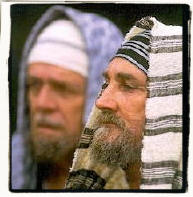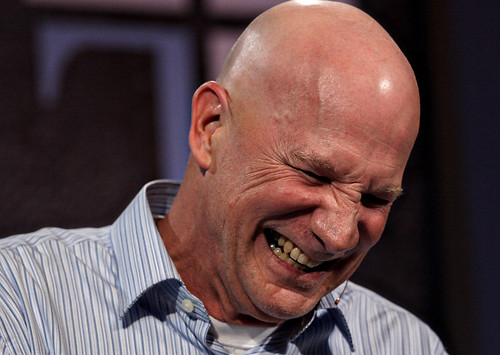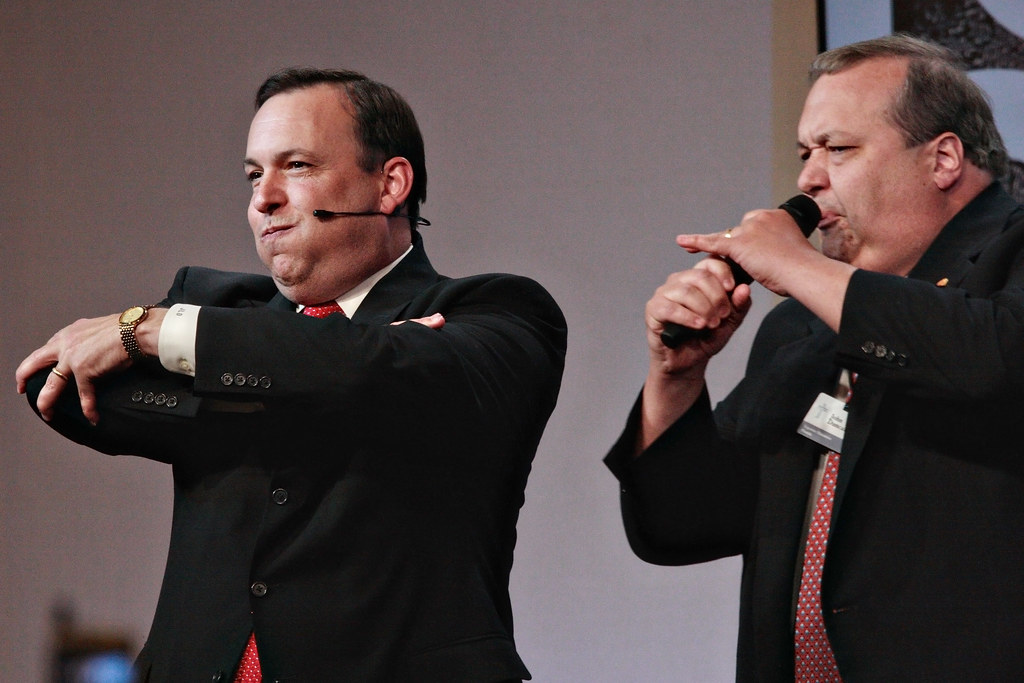 I am a Calvinist. And I am a Pharisee. Apparently, there are others like me.
I am a Calvinist. And I am a Pharisee. Apparently, there are others like me.As a "Calvinist," I treasure the Bible's truths about the glory of God and Christ; the good, wise and sovereign rule of God in all things; the efficacy of God's electing grace and Jesus' definite atonement; the hope that comes from God's preservation and the call to perseverance; the present and coming-more-fully kingdom of Christ where righteousness reigns; and the promised share of His glory we'll experience in the consummation. I treasure these things, as I know a lot of people do.
But I'm also a Pharisee. I tend toward a kind of care for detail and precision, toward "getting things right," that undermines catholicity and charity (see here). As a Pharisee, I also find myself suspicious of a lot of things, including joy (see here). Tight and sober. Suspicious and narrow. Pharisee.
Most of my Calvinist friends maintain that of all Christians Calvinists should be the most joyful and the most humble. We should be. We're not. I'm not. Let me not project.
Merely analyzing the truth doesn't make us humble. Neither does merely being suspicious make us safe with the truth. Pharisees think analyzing and suspecting are enough. And so, in time, the Pharisee's life becomes almost entirely negative. It's negative in attitude. But it's negative also because it's negating; it's a "contra-" life, a life a being against things.
But we have to defend against error. We have to guard the truth. We must protect the gospel. I know. I know. Pharisee.
There's something else that makes me a Pharisee. It underlies most of the other things that turn celebrants of Truth into gnat-straining Pharisees. Here's the third reason I'm a Pharisee and Calvinist, or, another reason why those two things happen together far more often than they should. The Pharisee in the Calvinist... is afraid. Fear loiters in his heart and mind like a senior feeding pigeons in Central Park.
The Pharisee lives with a chronic fear. That's why the Reformed types are so often the 'chicken littles' of the Christian world--running everywhere, writing everywhere, screaming everywhere, "The sky is falling! The sky is falling!" And even when we're not as manic as that, we're quietly, respectfully afraid. Just like the Pharisees of old.
We're afraid someone will take our place--the "others" who don't believe this, who don't practice that, or worse, who do practice that! Not them! We're afraid the church will be weakened and corrupted, that tares will grow up with the wheat. We're afraid our own hollow spiritual lives will be discovered. We're afraid our children won't be believers or won't do well in school (and we're more afraid of the latter than the former). We're afraid the culture is going to get worse and overrun the church. We're afraid of men's faces.
Fear, fear, fear. Everywhere there is fear.
But didn't Jesus say the wheat and tare would grow together? Didn't He say the love of many would grow cold? Didn't the Savior say there would be wolves and false Christs and deceivers? Of course He did. But the Pharisee says in his heart, "Yes, Lord. Of course, you're right. I believe that. Let me just remove this one little tare or patch of tares over here." The Pharisee is not only afraid, he's also blind. I can't tell the wheat from the tares; the Lord's angels will one day stick the sickle in the harvest to reap. But I don't remember that because we're afraid.
Then the Pharisee speaks: "But what if that takes too long? What if bad things happen in the meantime? What if... what if... what if...." Pharisee.

Pick an issue. My first response is fear, not faith. I don't call it "fear"; I call it "concern." That's more respectable. And who is respectable if not the Pharisee. And even when I do call it "fear," I pretend I mean something other than being afraid. Gotta keep my head up; I'm a Pharisee.
And this is why Pharisaical tendencies make us such bad Calvinists (by which I mean Christians, though not as if Calvinists are the only Christians). The scared little Pharisee in me is a practical atheist. He acts as though the truth I know about God really isn't at work. And it's a nasty little cycle. My fear that God won't act--at least how I want Him to act--causes me to act in my own wisdom or strength. Which then makes me afraid all the more. And so it goes until I'm wrapped and squeezed by an Anaconda of fear. The Pharisee.
Before I was a Calvinist, I suppose you could call me a semi-Pelagian, Arminian, dispensationalist. I suppose. I didn't have the labels then, but that's a fair sense of how I thought and acted. Not everyone wearing those labels thought this way, but I acted as though everything depended on me. My action in the world was the determining factor--whether that meant I had to be especially insightful and convincing in something like evangelism or Johnny wouldn't "get saved," or whether I had to "keep myself saved" in some way. My theology was bad. And my chief fear then was, what if I fail.
Then I discovered this mighty God on whom the governance of the universe rests. He was pleased to use means--human and otherwise--but He was the One ruling and guaranteeing the success of His will. How liberating that was! So I was freed from the fears associated with my performance.
But I wasn't freed from being a Pharisee. I just chose other fears. Excuse me, other "concerns." The kind of concerns that keep me employed as a Pharisee for as long as I would like, because, let's face it, there's no shortage of things to be "concerned" about. I can point out problems everywhere. I'm a Pharisee.

But the problem with Pharisees is they feel their fear and they fail to do anything constructive.
So I am "concerned" and not serving. I am afraid and not loving. I am "aghast" rather than empathetic. I am "hesitant" rather than enthusiastic. I am "alarmed" rather than steadfast. I'm an expert in fear and its synonyms. I can think of seventeen synonyms right now.
But how many synonyms for "grace" or "trust" can I count? Pharisee. How many can you count?
I am a Pharisee. Hear me roar--in fear.
In the end, the Pharisee is a silly man, a silly contradiction to the Calvinist. Fear? Really? Look upon Jesus the King you silly little man! Look to the Lord of glory!
What is this new fad you're up in arms about? What is this new "movement" causing your temperature to rise? What is this weakness in your life and your church making your shoulders tense? What threat over the horizon really is a threat to the Risen King and Ruler of All Creation who defeated death, pushed back the grave, and promised that the gates of hell would not prevail against His church?
Why are you afraid, O my soul? Why are you timorous, O my soul? My soul, I will look to the Lord who counsels "Be not afraid for I am with you."
I am a Calvinist, and I am an afraid Pharisee. I shouldn't be. What I need is a fresh glimpse of Jesus. The One I need to fear is God alone.
I'm reminded of another Calvinist (speaking anachronistically, of course) who faced fears and terror everywhere--real ones. But he glimpsed Jesus. And he spoke, "And now, O Israel, what does the Lord your God ask of you but to fear the Lord your God, to walk in all his ways, to love him, to serve the Lord your God with all your heart and with all your soul, and to observe the Lord's commands and decrees that I am giving you today for your own good?" (Deut. 10:12-13)
O, Father, grant that perfect love would cast out all fear as we live for you and reverence your holy Name.










.jpg)





